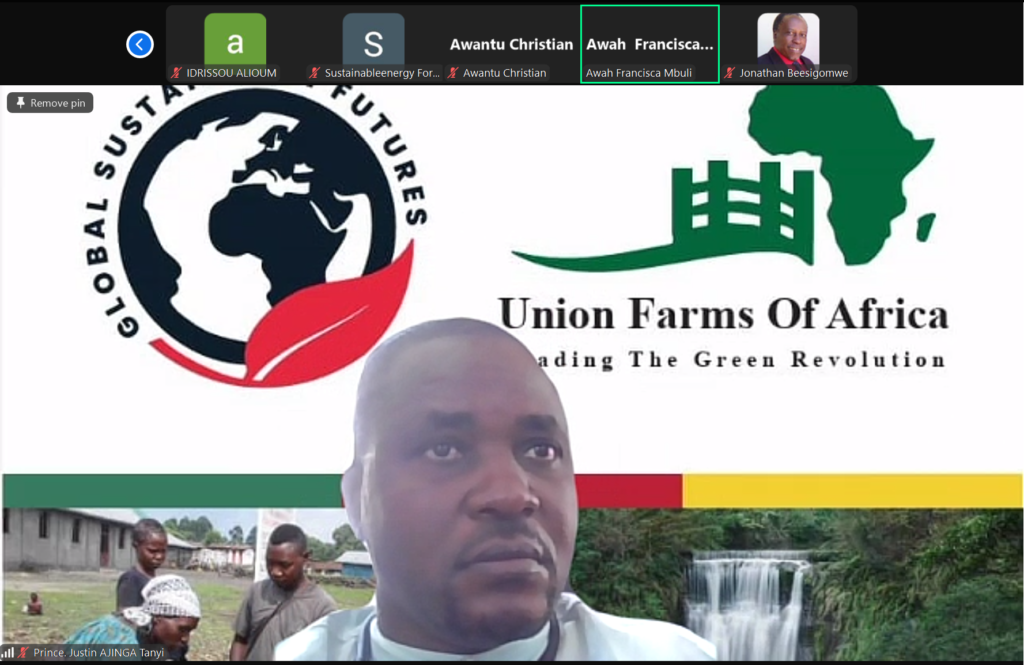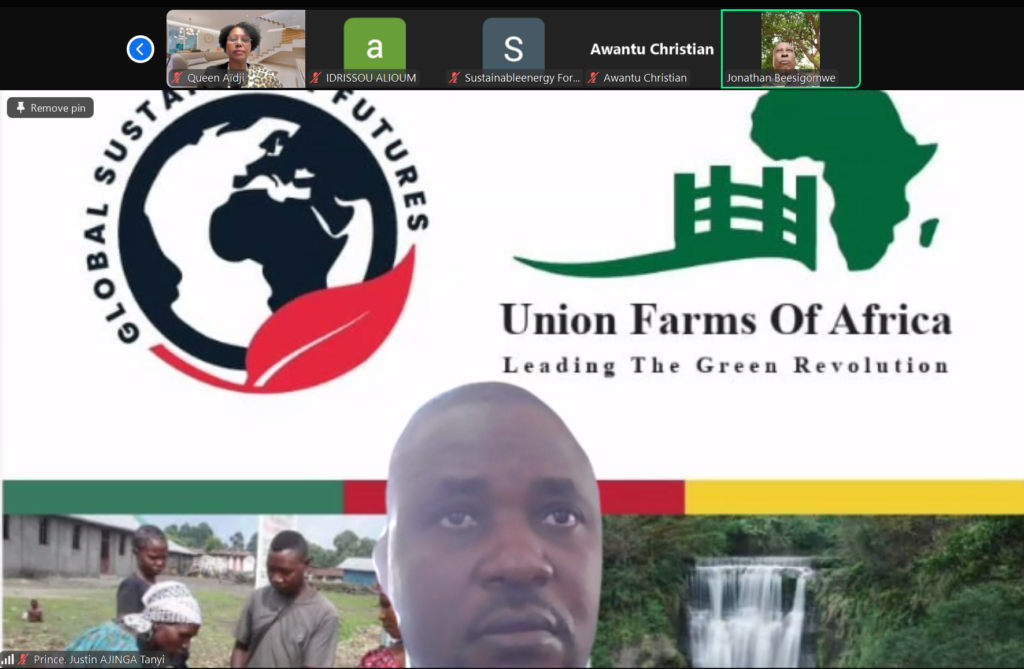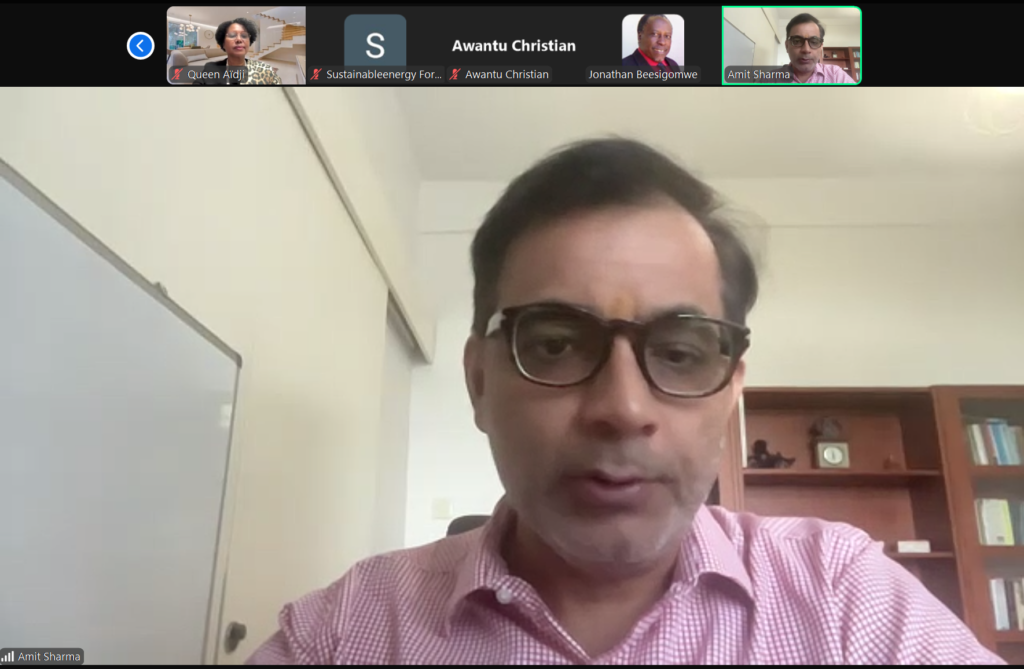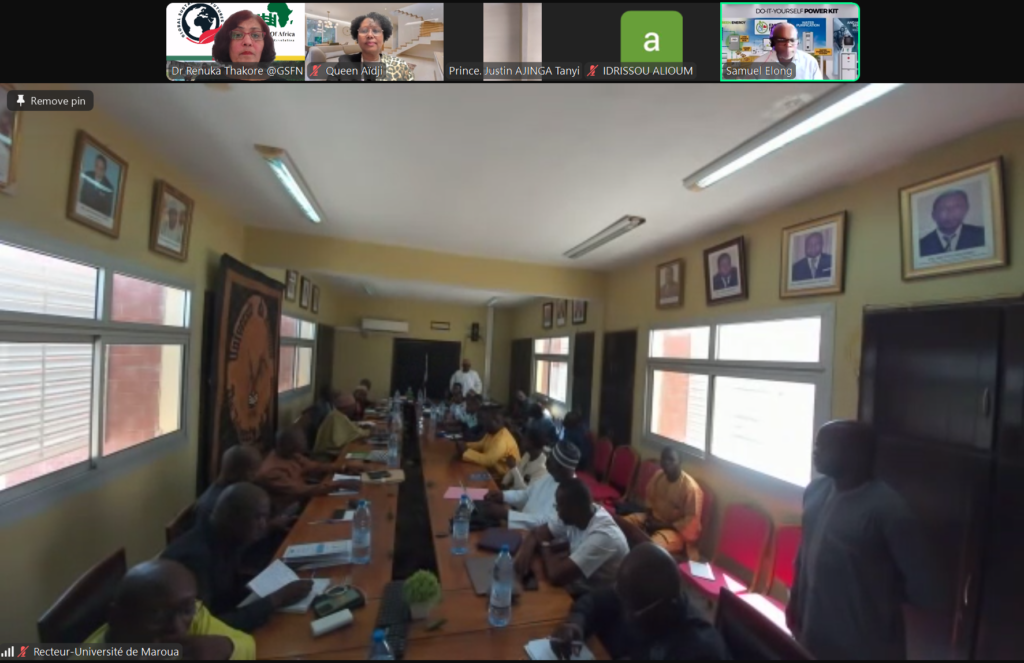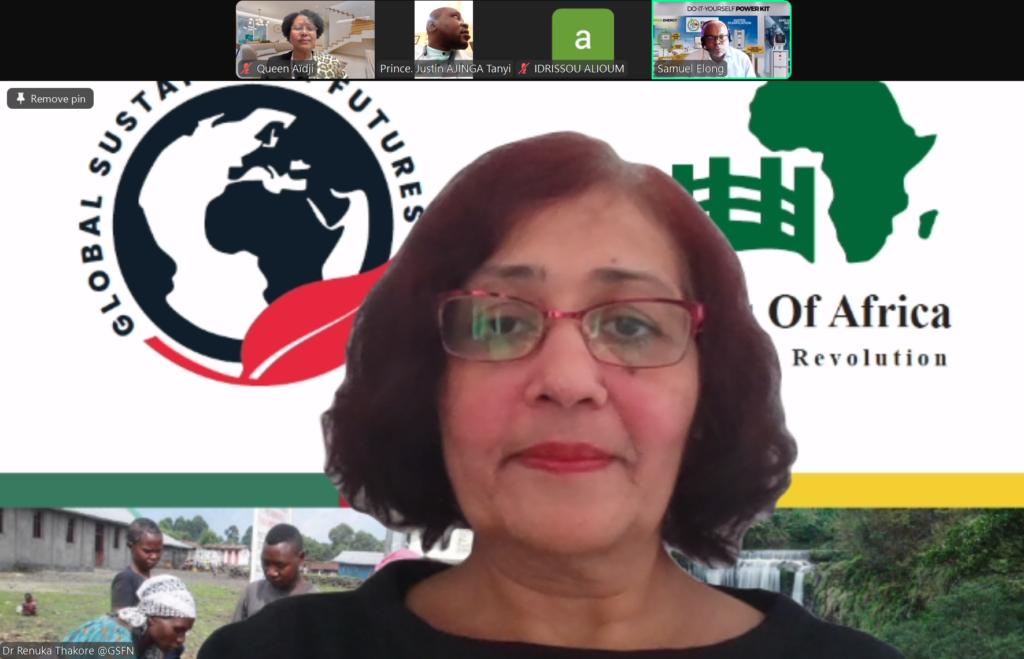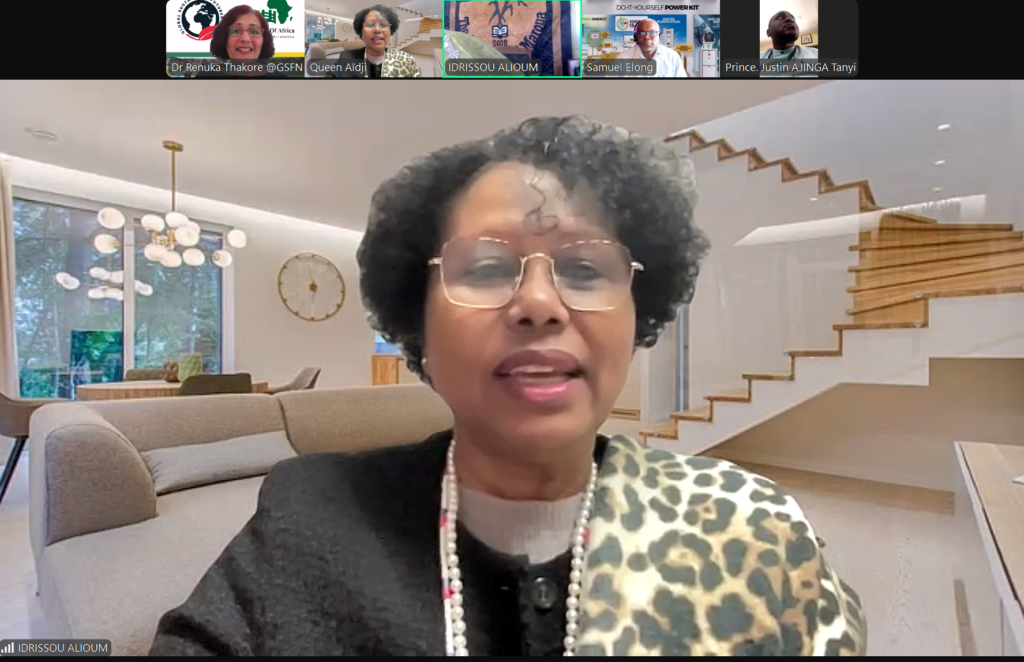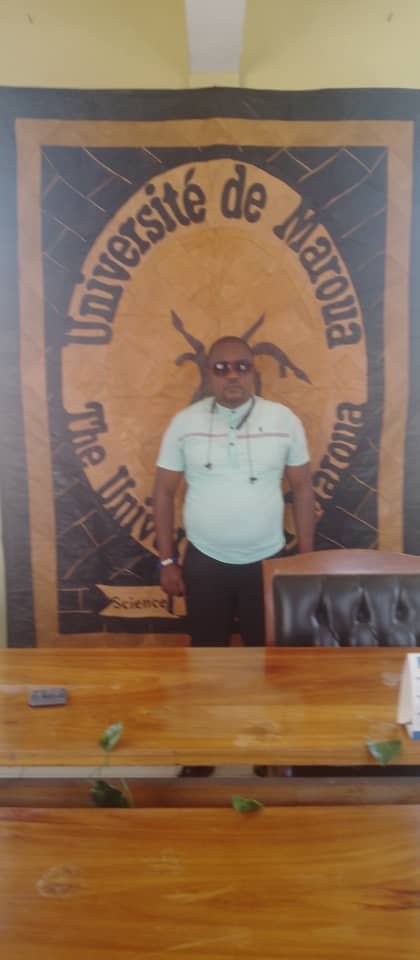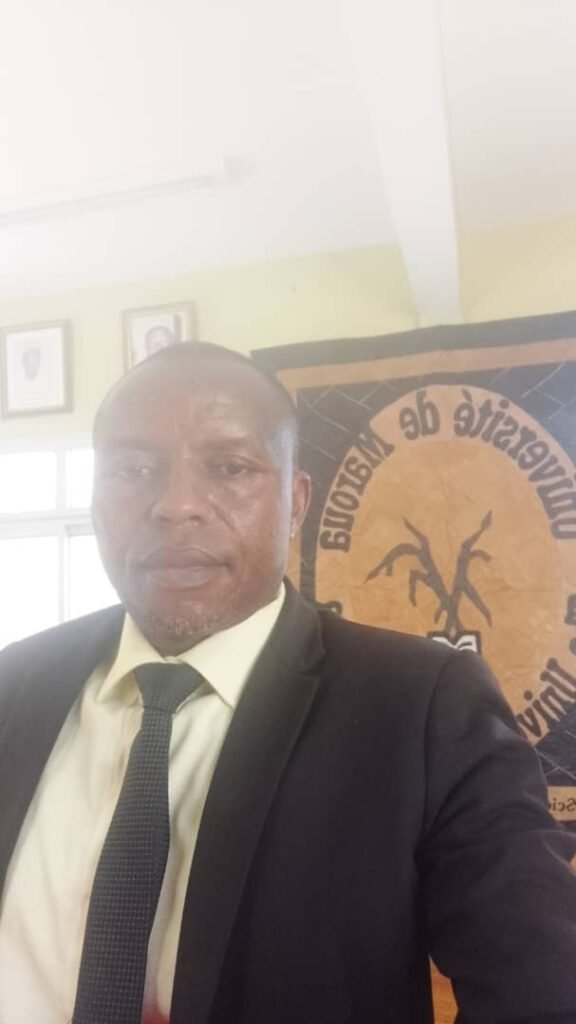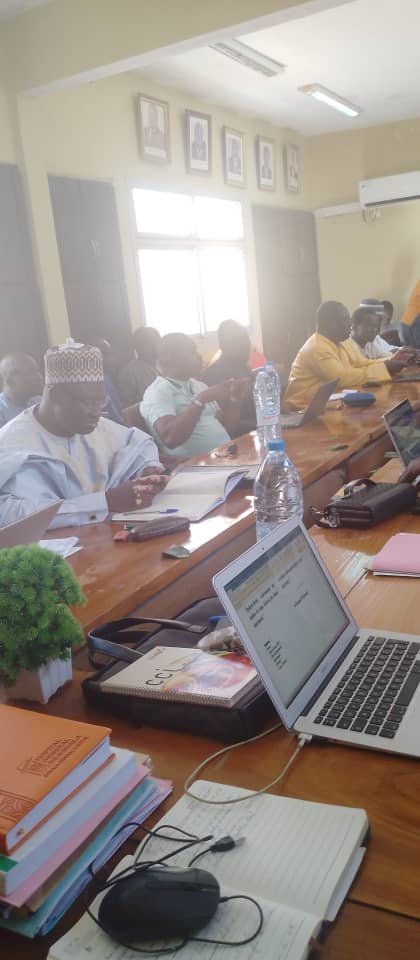Establishment of the Cameroon Climate Panel at the University of Maroua (UMa)
The University of Maroua (UMa) has taken a historic step in advancing Cameroon’s climate agenda by establishing the Cameroon Climate Panel, a multi-stakeholder initiative focused on climate resilience, carbon markets, renewable energy, and sustainability. This pioneering effort, led by the university’s Rector, demonstrates Cameroon’s commitment to achieving its Nationally Determined Contributions (NDCs) and the Sustainable Development Goals (SDGs).
The Cameroon Climate Panel was officially launched at UMa with the in-person presence of Prince Justin Tanyi, Founder of Union Farms of Africa, alongside many senior-level faculty members from the university. The panel also included distinguished local and international members who joined virtually, such as:
- Dr. Renuka Thakore, Founder & CEO, Global Sustainable Futures Network CIC
- Queen Marie-Ange Billot, Minister for Culture & Heritage, State of African Diaspora (SOAD)
- Samuel Elong, Energy and Finance Director, VAULTe
- Amit Sharma, SPREAD LTD and International Climate Registry
- Christian Awantu, YONECA
This panel marks the beginning of a long-term strategy to integrate climate action, energy innovation, policy influence, and economic transformation at the university and across Cameroon.
Key Highlights of the Launch
University of Maroua’s Commitment to Sustainability
The Rector of the University of Maroua (UMa) reaffirmed the university’s commitment to sustainability, emphasizing its strong international engagement, research capacity, and local impact. With modern facilities and a robust academic environment, UMa is well-positioned to serve as the hub for Cameroon’s climate leadership.
VAULTe’s Microgrid Donation: A Game-Changer for Green Technology
A landmark moment of the launch was the presentation by Samuel Elong, Energy and Finance Director at VAULTe. In a groundbreaking gesture, VAULTe gifted a microgrid to the University of Maroua, allowing students and researchers to study, research, and innovate in green technology. This decentralized energy system will empower:
- Students to gain hands-on experience in renewable energy solutions.
- Faculty and researchers to explore smart energy management, digitalization, and AI-driven climate solutions.
- Communities and businesses to pilot and scale up clean energy projects, contributing to economic growth and sustainability.
Dr. Renuka Thakore highlighted the importance of energy access and security, stating:
“There can be no development without energy. Energy access is the foundation for increased productivity, e-mobility, entrepreneurship, and employment—critical steps toward progress for young people and the nation.”
Short-, Mid-, and Long-Term Goals of the Cameroon Climate Panel
The newly formed Cameroon Climate Panel will operate with a structured roadmap, ensuring tangible impacts across different timeframes:
Short-Term Goals:
- Establish the climate panel with academic, industry, and community representatives.
- Initiate a carbon market in collaboration with SPREAD PTE. LTD.
- Launch the microgrid project to provide sustainable energy solutions.
Mid-Term Goals:
- Implement pilot projects in renewable energy, reforestation, and climate adaptation.
- Scale community participation by engaging local businesses, youth, and policymakers.
- Develop policy recommendations for climate governance and green economy growth.
Long-Term Goals:
- Influence national policy on carbon credits, renewable energy, and nature-based solutions.
- Expand international partnerships with universities, climate registries, and global sustainability networks.
- Sustain impact through AI-driven smart energy management, leveraging digital solutions for climate action.
Key Focus Areas and Impact on Stakeholders
Indigenous Knowledge and Cultural Heritage in Sustainability
Led by Queen Marie-Ange Billot, the panel emphasized the importance of integrating indigenous knowledge and cultural heritage into climate solutions. The State of the African Diaspora (SOAD) will collaborate with UMa to:
- Promote heritage-based sustainability efforts.
- Empower local communities to lead in environmental conservation.
- Engage African traditions and knowledge systems in addressing climate change.
Green Economy and Business Opportunities
The panel highlighted the economic benefits of climate action, creating new opportunities for businesses through:
- Sustainable supply chains and emissions reduction strategies.
- Industry-driven climate action programs under corporate social responsibility (CSR).
- Investment in clean energy, digital solutions, and carbon markets.
Policy Influence and Governance
Working closely with government bodies and climate agencies, the Cameroon Climate Panel will:
- Provide recommendations for national policy on carbon credits and renewable energy.
- Advocate for the integration of climate finance mechanisms into government policies.
- Ensure legal, environmental, and community rights are protected in climate initiatives.
Women-Led Climate Initiatives
Empowering women in climate leadership was a key focus of the discussion, with initiatives to:
- Support gender-inclusive climate action and entrepreneurship.
- Train and mentor women-led green businesses.
- Strengthen local participation in climate governance and policy-making.
Youth Engagement and Capacity Building
The University of Maroua will implement programs to empower young entrepreneurs in climate innovation, including:
- Training and mentorship programs for climate innovators.
- Digital tools and AI-driven solutions for climate risk assessments and carbon tracking.
- Exchange programs with international universities and sustainability organizations.
Digitalization and AI in Climate Action
A major component of the Cameroon Climate Panel’s strategy is the integration of AI and digital tools to enhance climate action. Key initiatives include:
- AI-driven climate risk assessments to predict and mitigate climate disasters.
- Smart energy management solutions to optimize microgrid efficiency.
- Building tech partnerships to advance innovation in renewable energy and climate resilience.
Call to Action for Stakeholders
Government & Policymakers
- Integrate climate policies and carbon markets into national frameworks.
- Promote renewable energy projects and microgrid solutions for rural development.
- Engage in international climate finance mechanisms to support sustainability.
Universities & Research Institutions
- Expand research on climate adaptation, digitalization, and AI-driven sustainability.
- Develop exchange programs and joint research initiatives with global institutions.
- Train students and young entrepreneurs in green technology and sustainable businesses.
Businesses & Industries
- Invest in sustainable supply chains and emissions reduction.
- Support corporate social responsibility (CSR) programs that drive climate impact.
- Engage in carbon credit programs to align with global sustainability standards.
Communities & Youth Leaders
- Participate in climate governance and advocacy.
- Develop local solutions for climate resilience and renewable energy adoption.
- Promote climate entrepreneurship through innovation and green business models.
The launch of the Cameroon Climate Panel at the University of Maroua marks a transformational moment in the country’s climate journey. With international partnerships, policy influence, and cutting-edge technology, the panel will drive sustainable development, economic growth, and resilience across Cameroon.
By integrating academic expertise, industry leadership, and community engagement, this initiative will not only support Cameroon’s NDCs and SDGs but also position the University of Maroua as a center for climate innovation in Africa.
The time for action is now! Let us work together to build a sustainable, resilient, and prosperous future for Cameroon and beyond.

